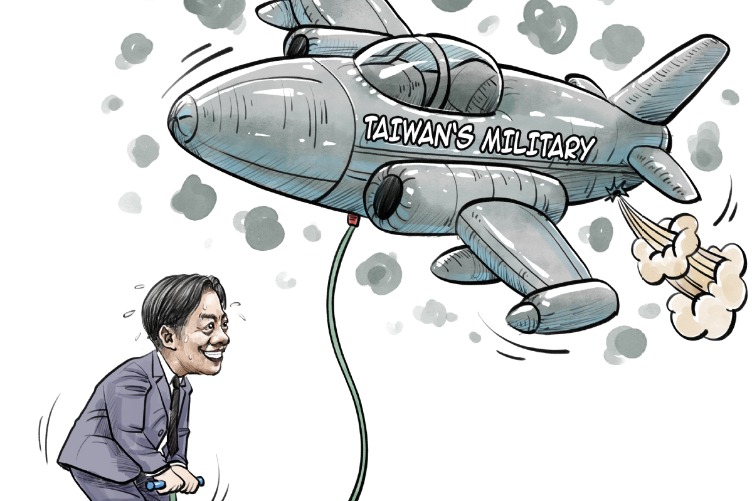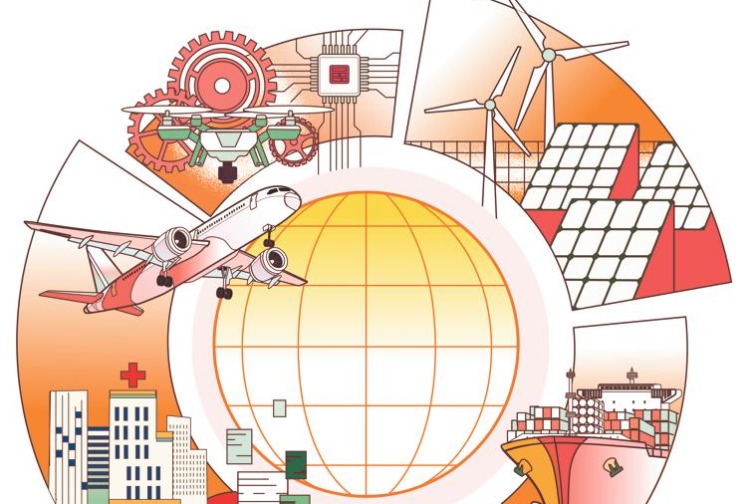China policy key to EU's strategic autonomy


To decouple, or not to decouple, with China, that is the question for the European Union and the United States. The EU has decided to not decouple, but instead to pursue a policy of "de-risking" from China. To achieve this, they say, the EU will focus on five factors.
To begin with, the EU will address its economic vulnerabilities and reduce its strategic dependency on China which, the EU officials claim, does not mean completely stopping trade with China. The key is to achieve diversification of raw materials and value chains, according to EU officials. Dutch Minister for Foreign Trade and Development Cooperation Liesje Schreinemacher responded to the United States urging the EU to increase restrictions on trade with China by saying the EU will ensure economic security powers remained in the hands of national governments.
Europe has been taking measures to boost its industrial competitiveness and strengthen its economic resilience, especially in areas such as healthcare, digital technology and clean energy technology, while deepening cooperation with like-minded partners. This includes reducing dependency on China for rare earths, batteries, pharmaceutical raw materials, and other key resources.
Second, Europe has been rebalancing its trade relations. China is an important trading partner, and Sino-EU trade has been beneficial to both sides. However, from the EU's perspective, the EU's trade deficit with China has doubled over the past decade, reaching nearly €400 billion ($433.32 billion) in 2022. In the EU's eyes, this imbalance has been caused partly due to China's "non-market practices" including "implicit subsidies", "discrimination" in public tenders, and "market distortions". Therefore, it is necessary to address these distortions and rectify such practices, the EU officials said.
Third, the EU, in order to better protect the bloc's security interests, will hold discussions on how to strengthen control on exports and overseas investments, especially in sensitive high-tech areas.
Fourth, the EU has decided to strengthen relations with its partners on core diplomatic policies and security challenges, and continue to urge China to not "support Russia's war efforts". The bloc also reiterated its commitment to peace and stability in the Taiwan Strait, and vowed to oppose any unilateral attempts to change the status quo, particularly through the use of force.
And fifth, the EU will deepen cooperation with other economies and promote the Partnership for Global Infrastructure and Investment as an alternative to the China-proposed Belt and Road Initiative.
However, Italian Prime Minister Giorgia Meloni has said that even if Italy does not participate in the Belt and Road Initiative, it can still maintain good relations with China.
And Schreinemacher recently warned that complete "decoupling" from China would make it impossible for the EU to achieve its planned green transition. She emphasized that China has made huge investments in green technology and research, and trade ties between the Netherlands and China are strong. She also said the two sides need each other to pursue green economic transformation.
Indeed, the biggest risk for Europe is its excessive reliance on the US for security (which outweighs its economic reliance on China), to the extent that an independent investigation into the Nord Stream 2 pipeline explosion cannot be conducted, and European media dare not speak or publish the truth. So why focus on China instead of the US, the real source of risk?
Under the guise of "de-risking", the EU is actually trying to "de-Sinicize" its economy and society and indirectly decouple from China, which will ultimately blunt Europe's competitiveness. This is something the EU needs to think carefully about, because unlike China and the US, it cannot rely on the bloc's market alone for its economic development and green transformation. Europe is also at a disadvantage when it comes to competing for the Chinese or the global market.
Hence, the EU should not allow the US to mislead it into pursuing "de-risking". The EU's policy toward China as a partner, competitor and rival is contradictory. It shows the bloc has not devised a clear strategy toward China and lacks strategic vision.
China-EU relations have become a litmus test for Europe's strategic autonomy. A Europe with independent foreign and economic policies can become a strong pillar of a multipolar world. In fact, German Chancellor Olaf Scholz asserted at the recent Global Solution Summit that a multipolar world is already a reality. It is hoped the EU will understand this and work out its own, independent policy toward China.
The author is director of the Center for EU Studies at Renmin University of China. The views don't necessarily reflect those of China Daily.































